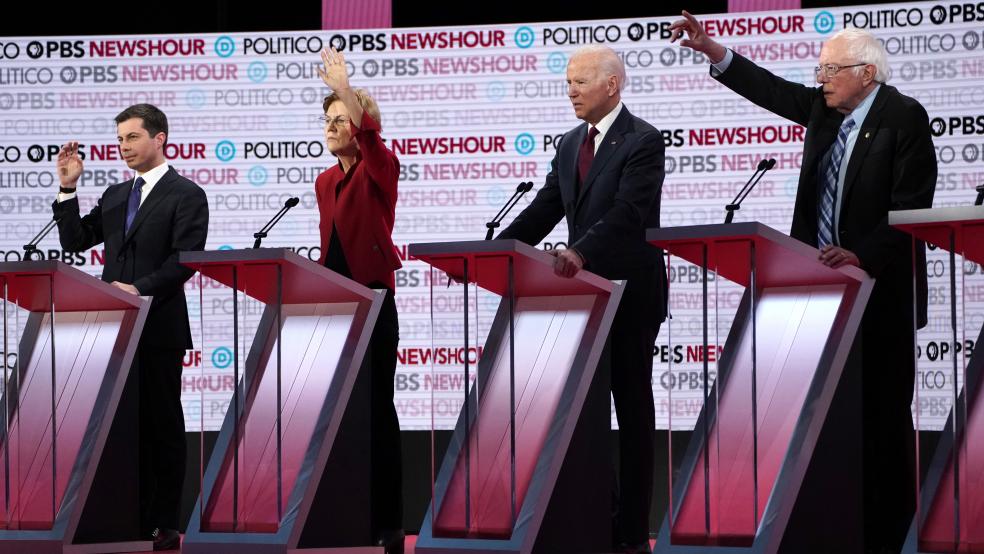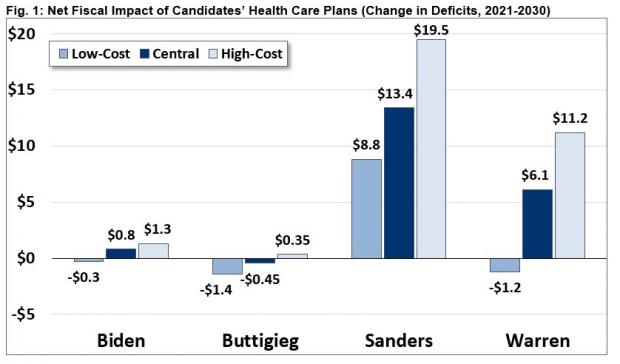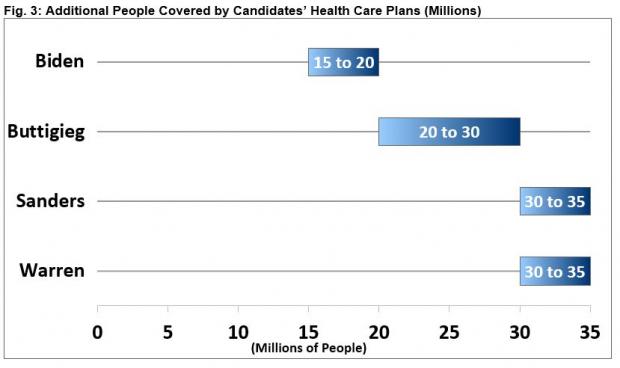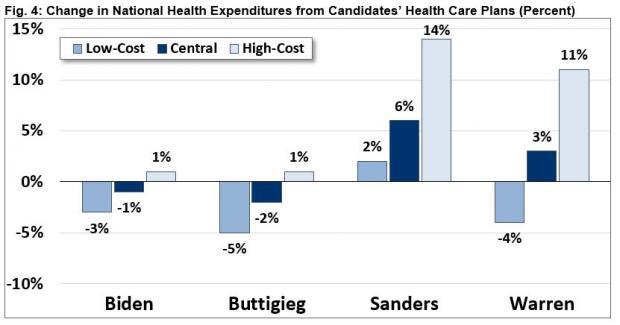What would the health care proposals of the Democratic presidential contenders mean for the federal budget?
The Committee for a Responsible Federal Budget is out with an in-depth analysis of the plans from four leading candidates: Joe Biden, Pete Buttigieg, Bernie Sanders and Elizabeth Warren.
The analysis provides a reminder that health care is the single largest part of the federal budget and a key driver of the national debt. As such, the budget watchdog group focuses on the potential fiscal impacts of the candidates’ plans more than on the coverage gains they might provide or their effects on total national health care spending — and it finds that the plans from three of the four could balloon the federal deficit by hundreds of billions or even trillions of dollars.
“To the extent that any of these plans are deficit-financed or the offsets are not fully specified, they impose a hidden burden that would not be captured in a traditional distributional analysis,” the report notes.
But, as you’ll see, the analysis also provides a reminder that health care is complicated — who knew? — and the range of possible outcomes for the federal budget is extremely broad.
The Cost Projections
Sanders’ Medicare-for-All proposal carries the highest cost to the federal budget, while Buttigieg’s "Medicare for All Who Want It" proposal might save $450 billion over 10 years, based on CRFB’s midpoint estimates.
But the potential budgetary effects vary considerably depending on the assumptions made. Sanders’ plan, for example, could add anywhere from $8.8 trillion to $19.5 trillion to federal deficits over 10 years, CRFB estimates. Warren’s plan, meanwhile, might decrease deficits by $1.2 trillion — or increase them by $11.2 trillion.
“Overall, we expect some households in every income group to be better off and some to be worse off under each of the plans we analyzed,” the analysis says. “On net, however, each plan would significantly increase the progressivity of federal fiscal policy. This is especially true of the two Medicare for All plans, since they will nearly eliminate premiums and out-of-pocket health spending in favor of a much more progressive tax regime.”
Other Plan Effects
The new analysis doesn’t ignore the other implications of the candidates plans, including how many more people would be covered. Sanders’ and Warren’s Medicare-for-All proposals would deliver the greatest increases in coverage:
And on the critical question of total national health expenditures — the total amount spent by individuals, groups, governments and private and public organizations — CRFB notes that the potential effects of all of the plans are rather uncertain, especially for the Biden and Buttigieg proposals. Again, the results very widely depending on the assumptions made. Warren’s plan, for example, might cut total spending by 4% or raise it by 11%.
“For Medicare for All plans especially, higher federal costs would be largely offset by lower household costs, leading total health costs to rise much less than federal spending,” the report notes. “Even so, scholars at the Urban Institute has estimated that the version of Medicare for All they analyzed would increase national health expenditures by about 13 percent.”








